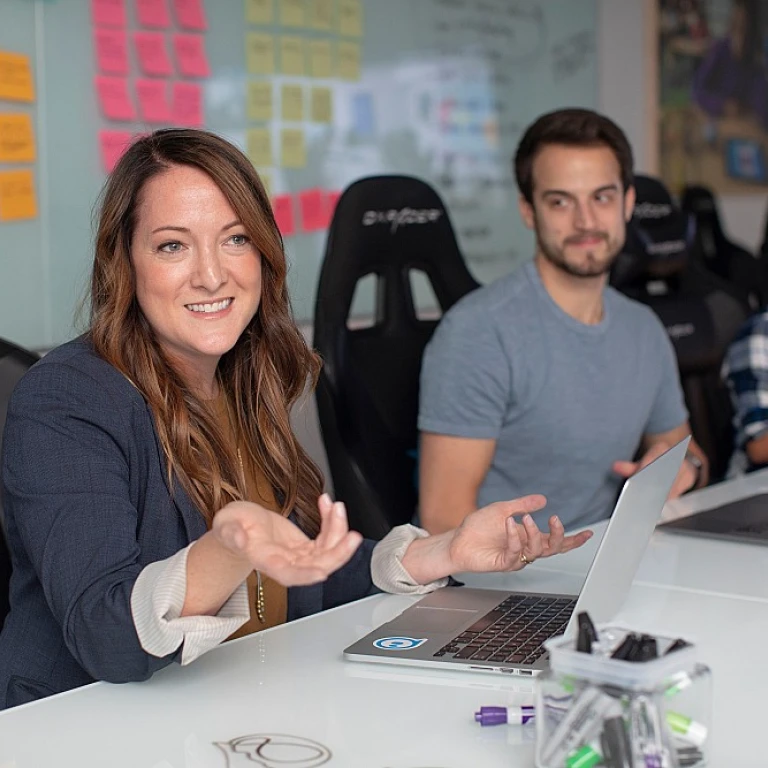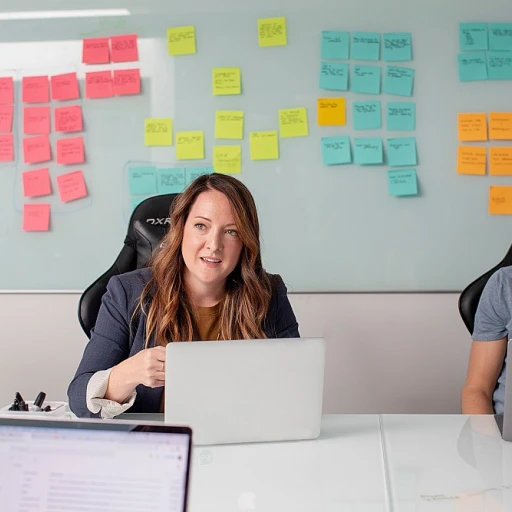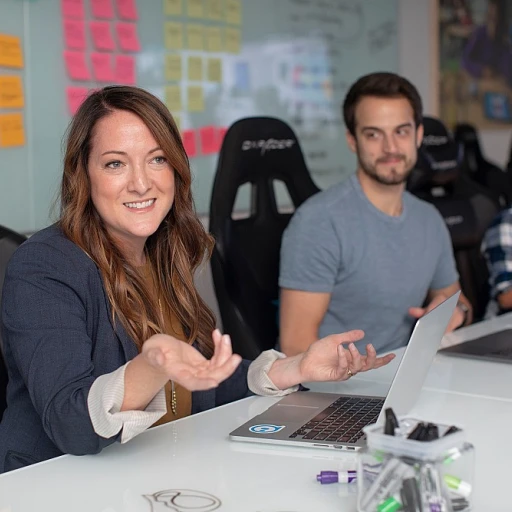
Understanding the Role of Mentoring in Reskilling
The Importance of Mentoring in Reskilling
Mentoring plays a crucial role in the process of reskilling, especially for software engineers navigating their careers in the rapidly evolving tech landscape. Whether it's enhancing technical skills, improving problem-solving abilities, or refining communication skills, a mentoring relationship can provide invaluable support and guidance. In the context of reskilling, mentors help mentees to assess their current skill sets and identify areas for development. This collaborative approach is particularly valuable in software development where keeping up with new technologies, such as data structures and system design, is essential. Moreover, the ability to clearly articulate and communicate ideas with team members is vital for success. One pivotal aspect of mentoring is the opportunity it provides to prepare for various interview scenarios, including technical and behavioral questions. Through real-world examples and practice, mentees can demonstrate their problem-solving skills and other competencies effectively during an engineer interview. Additionally, mentoring allows for personal and professional growth, giving individuals the chance to work through challenges and foster their own unique abilities. As the software industry continues to evolve, the demand for mentoring will only increase, as discussed in later sections of this article. For those looking to maximize the impact of their mentoring experiences, engaging with a *career coach* can further enhance confidence and career trajectory. By offering personalized advice and strategies, a career coach complements the support provided by a mentor, ensuring a well-rounded approach to reskilling.Common Mentoring Interview Questions for Software Engineers
Top Questions to Ask During a Mentoring Interview
When engaging in a mentoring interview, both the mentor and the mentee should utilize this opportunity to evaluate each other's skills and compatibility. This essential phase sets the foundation for a successful mentoring relationship, particularly valuable in the fast-evolving field of software engineering.
Here is a selection of pivotal interview questions you might encounter or consider using:
- What technical skills have you recently developed, and how did you acquire them? Understanding a mentee's technical ability and learning methods can reveal their adaptability and commitment to continuous development.
- Describe a time when you faced a significant technical challenge. This question highlights problem-solving skills and the mentee's approach to overcoming difficulties, crucial for software engineers tackling complex projects.
- Can you give an example of a successful team project you led or contributed to? It provides insights into their teamwork and communication skills, essential for collaborating in software teams.
- How do you prioritize tasks when working under tight deadlines? Assessing their time management and efficiency is crucial in fast-paced software development environments.
- What do you expect from a mentoring relationship? Clarity about expectations helps in establishing a productive and supportive dynamic between mentor and mentee.
- How do you handle feedback? A person's ability to accept and act on feedback is important for personal and professional growth.
Illustrating Effective Answers
Crafting thoughtful and strategic responses is key to establishing credibility and showcasing your potential during an interview. For instance, when discussing challenges, focus on specific examples that demonstrate your analytical and problem-solving skills effectively.
Approaching Behavioral and Technical Questions
Behavioral questions assess how your past experiences can predict future success in mentoring. Approaching these questions with honesty and specificity is crucial. Equally, technical questions can gauge your knowledge and expertise in data structures, system design, and software engineering fundamentals. Practicing responses will help build the confidence needed to articulate your skills clearly. To further enhance your interview preparation, consider building confidence with a career coach.
Crafting Effective Answers to Mentoring Questions
Crafting Effective Responses to Mentorship Queries
Navigating through mentoring interview questions often demands a structured approach that weighs in on both technical know-how and effective communication skills. Aspiring software engineers seeking mentorship must be prepared to convey their ability to problem-solve, collaborate within a team, and commit to continuous development. Below are tailored approaches to constructively addressing these key areas in an interview: Highlight Real-World Examples When asked about your software engineering experiences, it's essential to provide examples that reflect your problem-solving skills and capacity to work within a team. Describe a time when you successfully addressed a challenging software issue by collaborating with team members. This not only showcases your technical aptitude but also highlights your ability to function effectively in a collaborative environment. Real-life scenarios can paint a vivid picture of your contributions and potential as a mentee. Demonstrating Adaptability and Growth In a mentoring interview, questions centered around your ability to adapt in fast-paced situations are likely to arise. Demonstrate your skills and inclination towards learning by focusing on instances where you had to upskill rapidly to meet a project deadline. Discuss the tools or resources you employed and how you integrated new knowledge into your existing framework. This could naturally segue into a discussion on careers certifications for growth which are instrumental in reskilling. Communication as a Core Skill Effective communication is crucial in establishing a successful mentoring relationship. During the interview, emphasize experiences where clear communication led to problem resolution or project success. Whether working with data structures or system design, the ability to articulate complex ideas in layman's terms can significantly enhance team dynamics and project outcomes. Assess your communication style's impact on previous teamwork and be ready to provide an example answer if posed with behavioral questions. Employing these strategies when preparing for mentoring interviews can make your answers compelling, underscoring your readiness to embrace software development challenges and contribute meaningfully to the team or organization. Ultimately, honing these narrative skills not only aids in interviews but also enriches the ongoing mentoring relationship, fostering a collaborative work atmosphere.Real-Life Examples of Mentoring Scenarios
Illustrative Mentoring Scenarios in Software Engineering
Understanding real-life mentoring scenarios can provide valuable insights into how mentoring relationships unfold in the field of software engineering. These examples highlight the dynamics between mentors and mentees, showcasing the importance of effective communication, problem-solving skills, and technical expertise.
Scenario 1: Navigating System Design Challenges
In this scenario, a senior software engineer mentors a junior team member who is struggling with system design. The mentor begins by asking open-ended questions to assess the mentee's current understanding and approach. Through guided discussions, the mentor helps the mentee break down complex problems into manageable components, emphasizing the importance of data structures and efficient algorithms.
Example Question: "Can you describe a time when you faced a challenging system design problem? How did you approach it?"
Example Answer: "I once worked on a project where the system needed to handle a high volume of transactions. I started by analyzing existing solutions and then collaborated with my mentor to design a scalable architecture. This experience taught me the value of iterative development and peer feedback."
Scenario 2: Enhancing Communication Skills
Effective communication is crucial in software development. In this scenario, a mentor helps a mentee improve their ability to convey technical concepts to non-technical team members. The mentor provides feedback on presentation skills and encourages the mentee to practice explaining complex ideas in simple terms.
Example Question: "How do you ensure that your communication is effective when working with cross-functional teams?"
Example Answer: "I focus on tailoring my language to the audience's level of understanding. By using analogies and visual aids, I make technical information more accessible. Regular feedback from my mentor has been instrumental in refining my communication skills."
Scenario 3: Developing Problem-Solving Abilities
Problem-solving is a key skill for software engineers. In this scenario, a mentor guides a mentee through a complex debugging process. The mentor encourages the mentee to adopt a systematic approach, asking probing questions to help them identify the root cause of the issue.
Example Question: "Describe a time when you had to solve a difficult technical problem. What steps did you take?"
Example Answer: "During a critical project, I encountered a persistent bug that affected system performance. By methodically isolating variables and testing hypotheses, I was able to pinpoint the issue. My mentor's guidance in maintaining a structured approach was invaluable."
These scenarios illustrate the diverse ways in which mentoring can support the development of essential skills in software engineering. By fostering a collaborative environment, mentors help mentees build confidence and competence, ultimately enhancing their career trajectories.
Challenges and Solutions in Mentoring for Reskilling
Overcoming Common Hurdles in Mentoring for Skill Adaptation
Mentoring for reskilling in software engineering presents a unique set of challenges that require strategic approaches. Recognizing these obstacles and developing effective solutions is crucial for fostering a productive mentoring relationship. This section explores some of these challenges, providing insights into how both mentors and mentees can navigate them efficiently.
One significant challenge is the alignment of expectations. At the beginning of the mentoring relationship, it's essential to establish clear objectives. This involves discussing the specific skills or areas of expertise the mentee seeks to develop, such as understanding data structures or improving system design capabilities. By setting up a structured plan, both parties can work toward common goals, ensuring the time spent is beneficial.
Effective communication forms another cornerstone of successful mentoring. Software engineers often face the task of translating complex technical concepts into understandable advice. The ability to communicate effectively can assist in problem-solving and facilitate a deeper understanding of software development methodologies. Regular check-ins and feedback sessions can help maintain open lines of communication, allowing mentors to assess progress and adjust their approach as needed.
Addressing diverse learning styles is also critical. Each mentee may have a different way of absorbing information, requiring mentors to adapt their teaching strategies. For instance, some might excel through hands-on experiences, while others benefit more from theoretical discussions. By tailoring their mentoring style, mentors can enhance the learning experience and boost the mentee's ability to work effectively in teams.
Moreover, keeping up with the fast-paced evolution in the software engineering field is another challenge. Mentors must stay informed about the latest trends and tools to provide relevant guidance. This commitment to continuous learning not only improves their mentoring effectiveness but also sets a positive example for mentees.
Finally, measuring success in mentoring can be tricky. Traditional interview questions often assess technical prowess, but it's equally important to evaluate the development of soft skills such as communication and teamwork. Regularly revisiting initial goals and recognizing achieved milestones help reflect on the progress made.
Mentoring isn't without its challenges, but with a proactive approach, mentors can significantly contribute to the mentee's journey of reskilling. By understanding these dynamics, software engineers can better prepare for mentoring interviews and carve a path for growth in their careers.
The Future of Mentoring in Software Engineering
Embracing Technological Advancements
The future of mentoring in software engineering is closely tied to the rapid pace of technological advancements. As new tools and platforms emerge, mentors must stay updated to effectively guide their mentees. This involves not only understanding the latest in software development but also being able to assess and integrate these technologies into the mentoring process. For instance, incorporating AI-driven tools can enhance problem-solving skills and provide real-time feedback, which is invaluable for both mentors and mentees.
Fostering a Collaborative Environment
As software engineering teams become more diverse and distributed, fostering a collaborative environment is crucial. Mentors need to emphasize the importance of communication skills and teamwork. This involves guiding mentees on how to effectively communicate their ideas and work collaboratively with team members across different time zones and cultural backgrounds. A mentoring relationship that prioritizes open communication can significantly enhance the development of both technical and soft skills.
Adapting to Changing Roles
The roles within software engineering are evolving, with an increasing focus on interdisciplinary skills. Mentors must help mentees navigate these changes by encouraging them to develop a broad skill set that includes system design, data structures, and behavioral questions. This approach not only prepares mentees for current roles but also equips them with the ability to adapt to future challenges. By providing real-life examples and crafting effective answers to common interview questions, mentors can help mentees build confidence and readiness for any engineer interview.
Continuous Learning and Development
In the ever-evolving field of software engineering, continuous learning is key. Mentors should instill a mindset of lifelong learning in their mentees, encouraging them to seek out new knowledge and skills regularly. This can be achieved through structured mentoring sessions that focus on both technical and personal development. By sharing personal experiences and example answers to complex questions, mentors can inspire mentees to pursue their own paths of growth and development.













